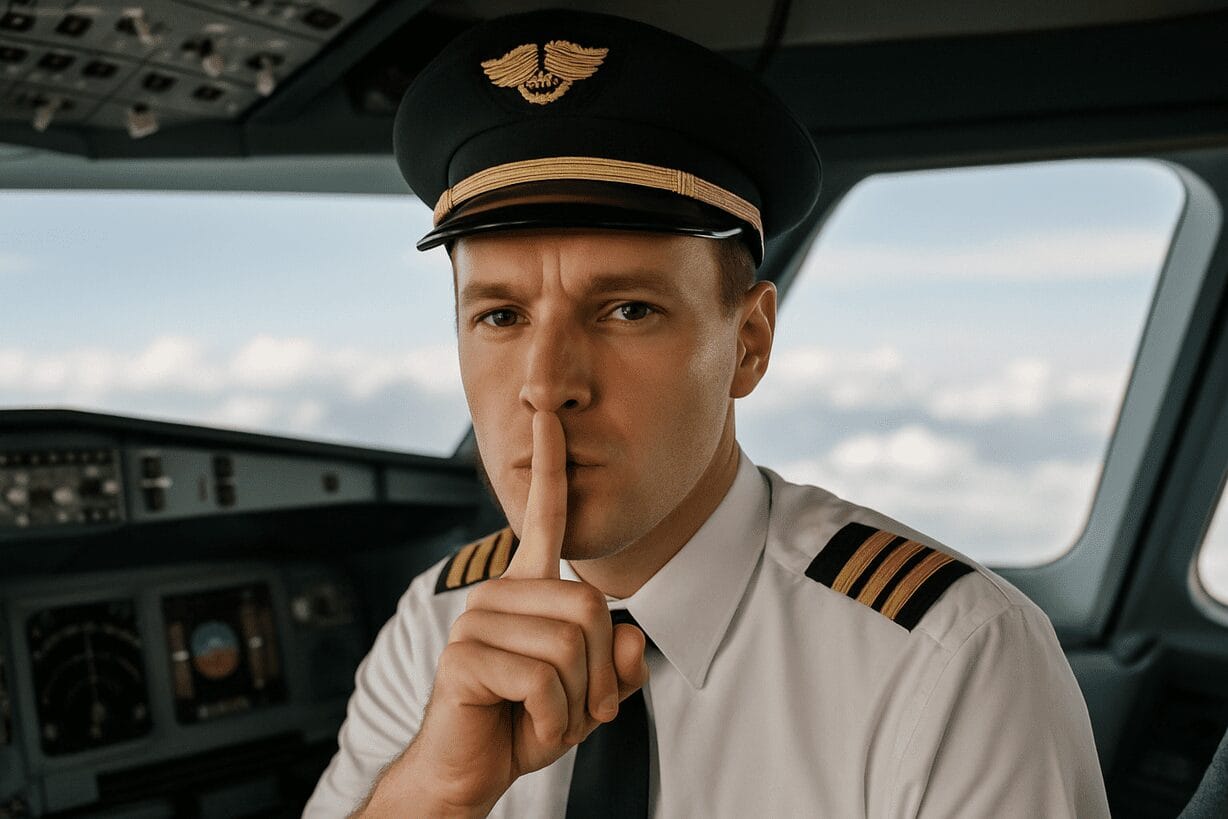Table of Contents
10 Secrets Airlines Don’t Want You to Know
Air travel might seem straightforward—book a ticket, check in, fly. But behind the boarding gates and friendly smiles, airlines operate in a world of carefully calculated decisions designed to maximize profit and minimize hassle (for them, not always you). Frequent flyers and insiders alike know there’s more to flying than meets the eye. Here are 10 secrets airlines don’t want you to know—and knowing them might just change the way you fly forever.
1. Your Seat Choice Isn’t Always Random
Ever get stuck in a middle seat and feel like your bad luck is just that—luck? Not quite. Airlines use advanced algorithms to strategically assign less desirable seats to passengers who don’t pay for upgrades. Even if you check in early, if you didn’t pay extra for seat selection, you’re more likely to be “randomly” assigned the least comfy spot. Paying for your seat may not seem worth it—but in many cases, it’s the only way to guarantee a decent place to sit.
2. Oxygen Masks Only Last for 15 Minutes
When the oxygen masks drop, you’re told to put yours on immediately. But what airlines don’t openly advertise is that the oxygen supply only lasts about 12 to 15 minutes—just long enough for the pilot to bring the plane to a safe altitude where you can breathe normally. While that sounds short, it’s usually enough time—but not exactly the comforting image most passengers have.
3. You’re Probably Overpaying for That Ticket
Even with budget airlines, you’re likely paying more than necessary. Fares fluctuate by the hour, and airlines track your searches with cookies. Search the same route multiple times, and prices may go up—not because demand is rising, but because they know you’re interested. Pro tip: Use incognito mode or a VPN when searching for flights, and book on Tuesday afternoons, when fares are statistically at their lowest.
4. Planes Are Filthier Than You Think
Cabins are cleaned quickly between flights, and not everything gets the full wipe-down. The seatback tray table? Often dirtier than the bathroom. It’s been found to harbor bacteria levels eight times higher than the toilet flush button. Bring disinfectant wipes, and don’t touch your face during the flight if you can help it.
5. Flight Attendants Aren’t Paid Until the Doors Close
Here’s a shocker: Most flight attendants don’t get paid until the aircraft doors are shut and the plane pushes back from the gate. All that time they spend boarding, greeting you, and helping with luggage? Unpaid. It’s one of the lesser-known aspects of airline labor policies that’s sparked many unionization efforts.
6. Lost Luggage is Often Avoidable
Most luggage goes missing during short layovers when bags don’t have enough time to make the connection. Booking a flight with at least a 60-minute layover significantly reduces your chances of arriving at your destination without your belongings. Also, removing old tags from previous flights helps ensure your bag doesn’t get routed incorrectly.
7. Overbooking is Intentional
Yes, airlines routinely sell more tickets than there are seats. They count on a certain percentage of no-shows to keep planes full. When everyone shows up? That’s when you hear the gate agents asking for volunteers to give up their seat. If this happens to you, know your rights—U.S. laws require compensation if you’re involuntarily bumped.
8. You Can Get a Refund—Even on Non-Refundable Tickets
Here’s one they definitely don’t advertise: If you cancel a flight within 24 hours of booking and your departure is more than 7 days away, you’re entitled to a full refund—even on non-refundable tickets. Also, if your flight is significantly delayed or rescheduled, you may qualify for a refund. Always check the airline’s conditions of carriage or speak to customer service directly.
9. The Pilots Might Be Asleep
Autopilot systems do most of the flying once you’re cruising, and long-haul flights often have designated rest periods for pilots. In fact, “controlled rest” is allowed in many countries, where one pilot naps while the other stays awake. It’s usually done safely, but still surprising for many passengers to learn.
10. Delays Can Be Strategic
Ever been told your flight is “delayed due to maintenance” or “awaiting crew”? Sometimes that’s true. But sometimes it’s a delay tactic to avoid paying penalties. If they cancel, they owe you compensation or rebooking options. If they delay just long enough, they avoid those costs—and might even make the problem seem out of their hands. Don’t be afraid to ask questions or request hotel and meal vouchers if the delay is extensive.
Final Thoughts
Airlines may not be lying to you outright, but they definitely aren’t telling you everything. Understanding these behind-the-scenes tactics can help you make better decisions, avoid unnecessary stress, and maybe even save some money. Next time you board a flight, you’ll be armed with a few insider secrets they’d rather you didn’t know.
More from The Daily Mesh:
- 12 Mind Blowing Facts You Won’t Believe Are True
- 7 Things You Should Stop Doing By 30 (And What To Do Instead)
- 10 Habits of Highly Successful People You Can Steal Today


